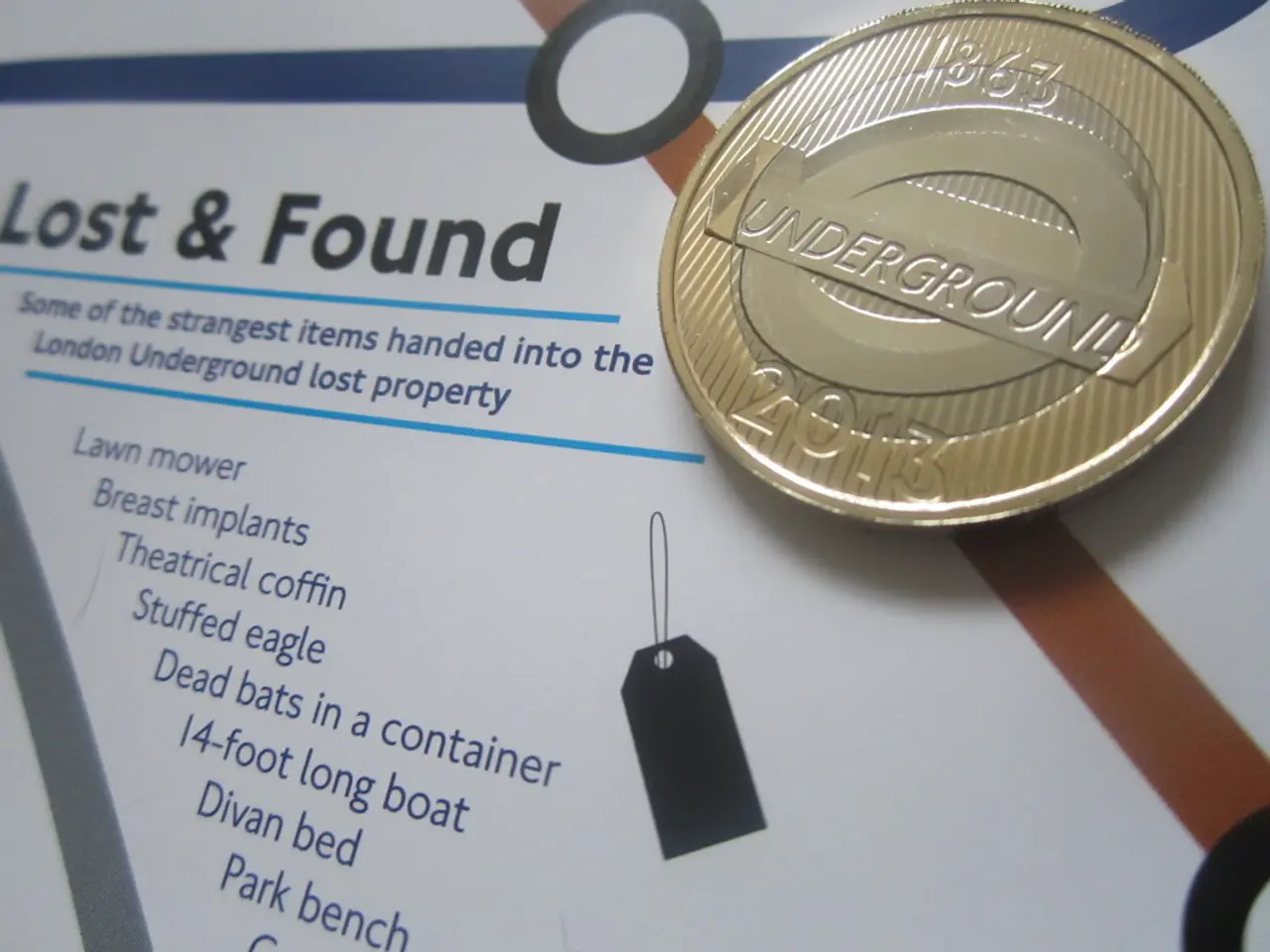Strategic Leaders Emphasize Long-Lasting Results Over Short-Term Gains
In this pace-shifting world, leaders who can't see beyond the horizon are quickly becoming relics. Modern customers demand more than just products; they seek companies with a conscience. Workers yearn to work for businesses that respect their values and contribute to positive change. Investors are pushing for transparency in environmental and social responsibility.
Leadership, today, transcends hitting targets. It's about constructing an enduring legacy. Visionary leaders are stepping up to the plate, choosing strategies that support long-term growth, even if it means sacrifice in the short term. They are refocusing their gaze on outcomes that elevate not just the business but society and the environment as well.
Short-term victories can result in long-term disasters
It's easy to understand why many leaders pursue quick wins. Short-term results can please investors and create a strong image on paper. But this mindset can be dangerous. Short-sighted decisions often lead to cost-cutting measures that harm employees, ignoring long-term risks, or neglecting investment in innovation.
Sadly, there are numerous instances of once-powerful companies collapsing because they failed to plan ahead. Others are still grappling with reputational damage caused by rushed decisions with unforeseen consequences. Forward-thinking leaders are better prepared to avoid these traps.
The triple bottom line is the future of leadership
The phrase "triple bottom line" – people, planet, and profit – is gaining popularity in leadership strategies. It's not about scaling back operations. It's about operating efficiently. Leaders who embrace this philosophy consider how their decisions affect social and environmental outcomes, not just financial ones.
An educational program can ready leaders for the challenges ahead. For example, a sustainability leadership program can equip leaders with the skills to apply this approach. It teaches them how to evaluate risks, create sustainable strategies, and articulate their vision clearly. These programs also demonstrate how to balance ethical leadership with real-world business needs.
Today's world calls for a broader perspective
Businesses are embedded within a larger ecosystem comprising people, communities, and the environment. Issues like climate change, income inequality, and resource scarcity are no longer distant threats. They are present issues affecting operations, supply chains, and customer expectations.
Leaders can no longer afford to ignore these challenges. Solving them – or even understanding how they affect business – requires a comprehensive viewpoint. Forward-thinking leaders take the time to understand these complexities and how their actions connect to the bigger picture. They think not just about what works now, but what will work years from now.
Long-term thinking cultivates stronger companies
Short-term decisions might result in instant profits, but they rarely lay solid foundations. When forward-thinking leaders focus on long-term goals, they create resilient systems that are adaptable and more equipped to handle change. These companies are usually well-prepared for market fluctuations, workforce shifts, and environmental challenges.
Resilient companies tend to perform better in the long run. They recover faster from setbacks. They have better employee retention, customer trust, and stakeholder support. Long-term thinking supports informed investments, stronger policies, and healthier growth.
Society expects leaders to walk the walk
Customers, employees, and investors are raising their expectations. It's no longer sufficient for a business to merely generate profits. People demand responsible actions from companies – transparency, fairness, and purpose. They are more likely to back leaders with a vision that extends beyond profits.
This trend makes long-term impact essential, not a mere nicety. Leaders who listen, learn, and respond to stakeholder concerns are more likely to thrive. They build trust. They create lasting relationships. And they remain relevant.
Purpose-driven workplaces attract top talent
The modern workforce craves more than a paycheck. People seek companies that align with their values. They strive for purpose, not just profit. This is particularly true for younger professionals entering the job market with high expectations for ethics, sustainability, and inclusion.
When leaders commit to long-term goals that uplift people and the environment, they create workplaces that employees are proud to be part of. This helps attract talented individuals and keeps turnover low.
Responsible leadership means lower risk
Making decisions without considering long-term consequences usually leads to trouble. Short-sighted decisions aimed at appeasing shareholders or cutting corners may result in legal issues, bad press, or internal strife. Disregarding social or environmental considerations can inflict permanent damage on the organization.
Responsible leaders minimize these risks by planning for the future. They analyze the long-term effects of their actions. This includes understanding how policies affect communities, how operations impact the environment, and how corporate actions reflect on the company's image. By avoiding shortcuts and emphasizing stability, responsible leaders protect their organizations from avoidable pitfalls.
Long-term perspective fuels genuine innovation
Innovation doesn't always blossom under tight deadlines. When forward-thinking leaders feel pressure to deliver quick results, they often stick to the familiar or shy away from audacious ideas. True innovation requires time and trust.
Long-term thinking provides leaders with the space to experiment, learn, and improve. It fosters novel ideas that might not show immediate results but could lead to groundbreaking discoveries in the future. Whether it's embracing emerging technology, transforming product manufacturing processes, or reimagining how teams interact, sustainable innovation relies on patient, long-term support from leadership.
Leaders who focus solely on short-term triumphs limit their potential. They may witness quick results, but they miss out on the deeper value that long-term impact offers. In contrast, visionary leaders create enterprises that stand the test of time. They make choices that uplift people, benefit the planet, and secure the future of their organizations.
Choosing long-term impact does not equate to neglecting profits. It signifies understanding that lasting success stems from actions grounded in integrity. Through responsible planning, stronger values, and continuous learning – as provided by a sustainability leadership program – leaders can achieve real change. And in today's world, that kind of leadership is more transformative than ever.
ADDITIONAL READING
- Leveraging Corporate Responsibility to Bolster Brand Reputation:A detailed analysis of the role of corporate social responsibility (CSR) in building brand reputation, focusing on case studies, best practices, and strategies for effective CSR implementation.
- The Intersection of Sustainable Leadership and Financial Performance:An examination of how sustainable leadership practices can lead to improved financial performance, through case studies, statistical analysis, and recommendations for corporate executives.
- Creating Shared Value: A Framework for Elevating Business and Social Progress:A thorough exploration of the concept of shared value, explaining how businesses can create social and environmental value while enhancing their bottom line, backed by real-world examples and insights from acclaimed authors Michael E. Porter and Mark Kramer.
Healing the long-term disasters often caused by short-sighted financial decisions requires visionary leaders to adopt the triple bottom line approach, prioritizing people, planet, and profit. They can leverage this holistic perspective not only to improve their business but also to foster healing within society and the environment.
Effective leadership in the modern business world demands a proactive approach to healing, as customers, employees, and investors increasingly value companies that align with their ethical and social values. By embracing the triple bottom line and striving for long-term positive change, leaders can create purpose-driven workplaces that attract top talent and promote healing within the industry.






